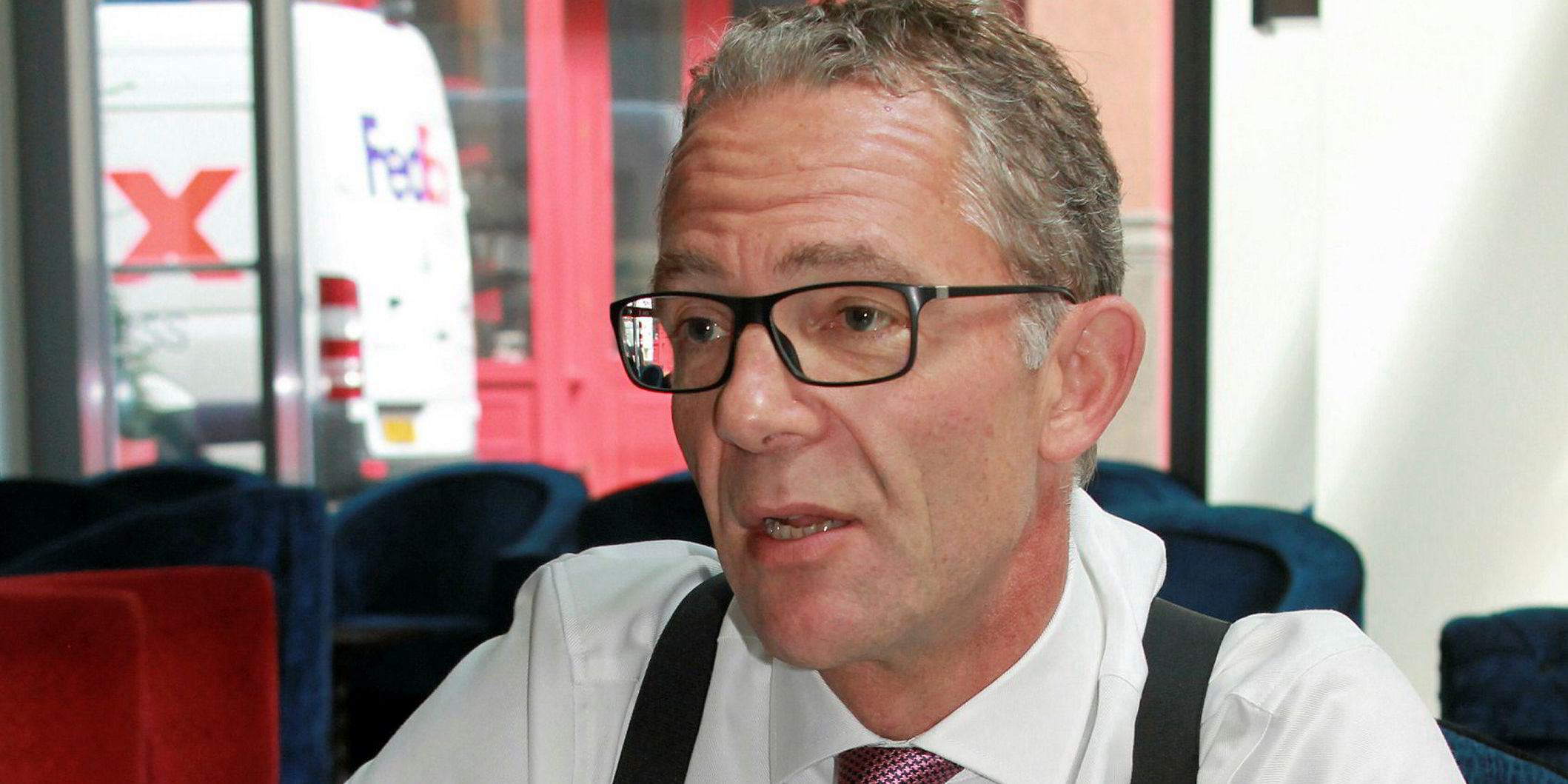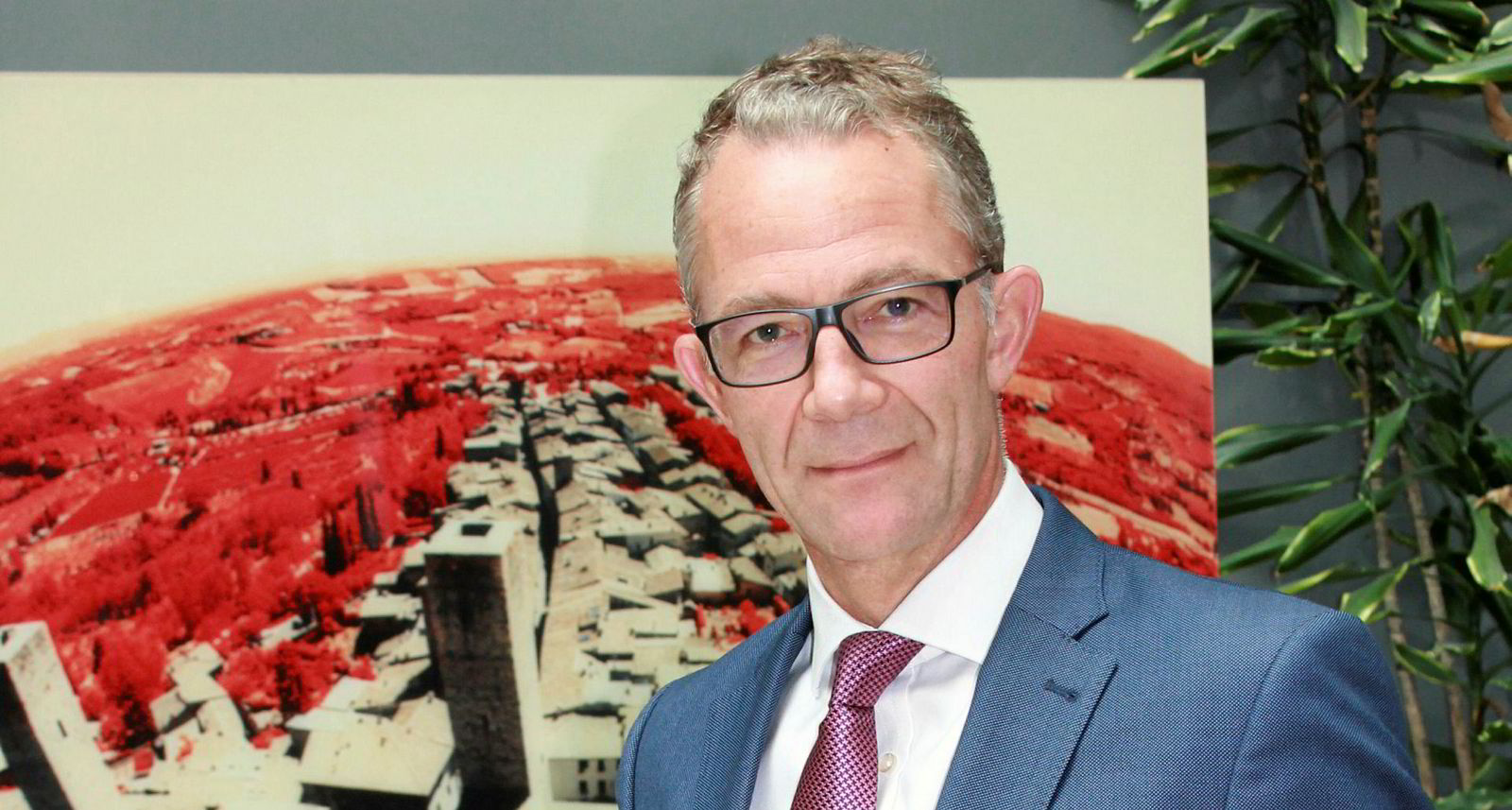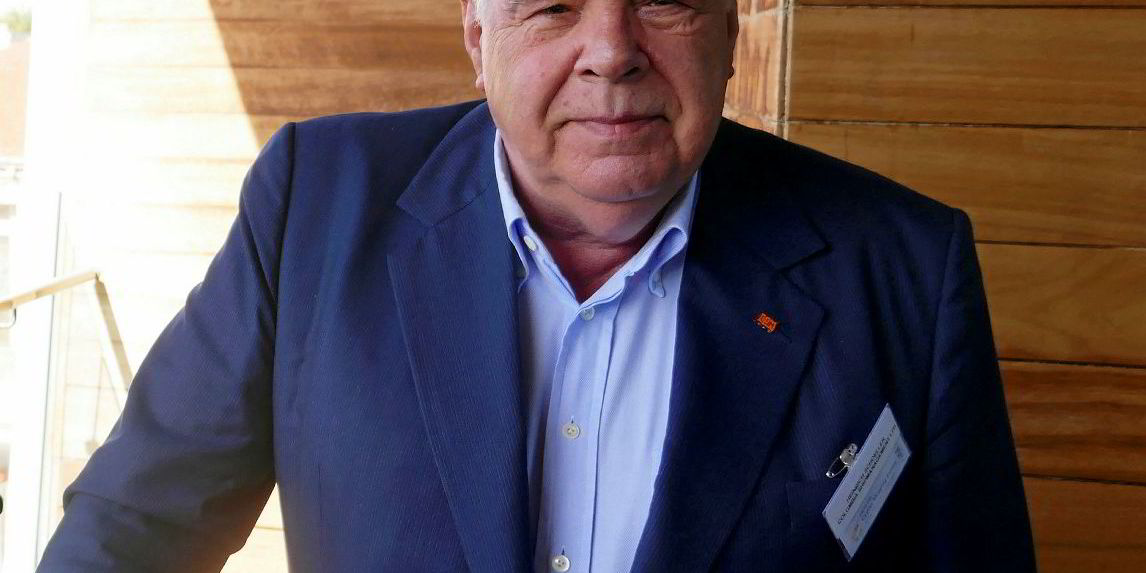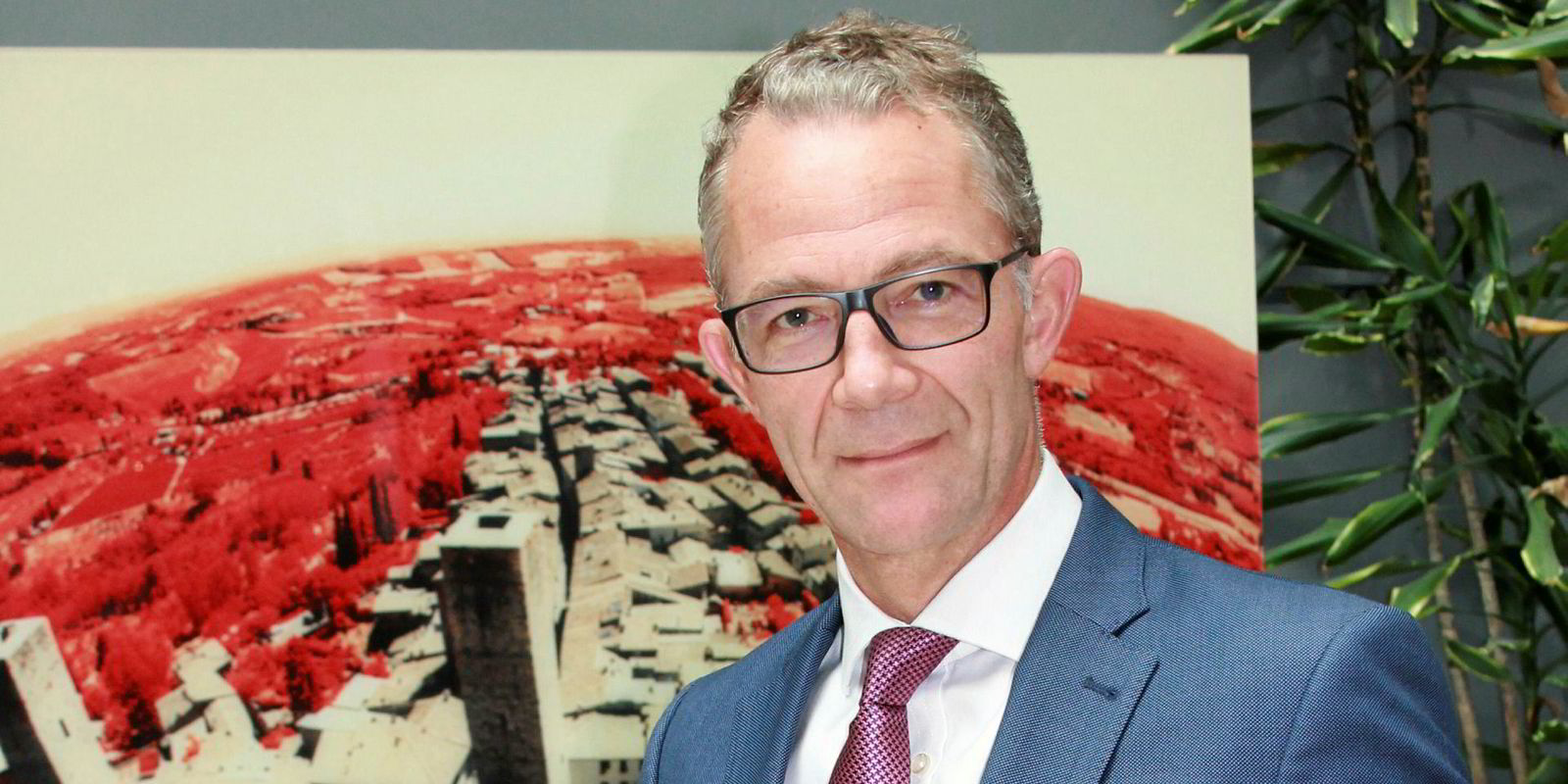Columbia Shipmanagement and Marlow Navigation have completed a long-awaited merger after securing regulatory approval for the deal.
Heinrich Schoeller and Hermann Eden, the respective founders of the two companies, will each take a 50% stake in Columbia Marlow Shipmanagement, which will become one of the largest players in the third-party management market.
Mark O’Neil, chief executive of the combined company, says talks between the two shareholders began a couple of years ago and centred initially on a potential IT co-operation.
A company called Blue Dynamics — which focused on digitalisation at a time when both sides saw the potential demand — was soon established.
Discussions relating to a full merger quickly followed.
“It became very apparent that these two businesses, albeit slightly different cultures, would be very simple to merge together,” O’Neil told TradeWinds.
Columbia is primarily a full technical manager, with a particular strength in tankers, while Marlow is chiefly a provider of crewing services, leaving minimal overlap between the two organisations, he says.
“There is very little blue-on-blue and those areas that there are can be slightly tweaked or those resources used in other aspects of the business,” O’Neil said in an extended interview.
“From a Columbia perspective, I can’t think of another management company the size of Marlow Navigation that would be as good a fit.”
Also simplifying the process was the acceptance of a shared ownership structure.
“In my legal career, I have been through mergers that were not mergers but takeovers,” O'Neil said. “It radically alters the perspective of the people going in. If they are going in on an equal footing and you are creating something new, maintaining the DNA of the old organisations, then you get buy-in.
“It’s just then a case of leadership to invigorate people after a merger process to go forward and create this new baby out of the whole process.”
The name Columbia Marlow Shipmanagement came about in an equally simplistic way.
“If anything expresses the co-operation and the lack of ego in this merger process, there was not a single debate about what comes first,” O'Neil said. “There was not any hrumph from one office or another. It was just alphabetical, Columbia Marlow — let’s do it.”
Both companies have not made anyone redundant since 2008 and Schoeller and Eden have given a categorical undertaking to their staff that nobody will be shown the door as a consequence of the merger.
“It has been very easy to marry these two organisations,” O’Neil said.

Less straightforward has been the securing of regulatory approval. The delays in receiving the green light from competition authorities has been a frustration.
However, O’Neil sees a positive side.
“If you had asked me two months ago, do I have any regrets, I might have said, ‘this process could have gone faster’," he said. "Actually, where we are sitting now, it’s been ideal. Everybody has bedded in. Everybody has managed to look at what each company does and reappraise and reassess and have a really clear idea, come launch date — now — what we want to do and how we want to do it.”
He says a lot of work conceptually has been completed and there is “an absolutely clear vision” of where the company should be and what it should focus on.
“It is all about the service,” he said. “We are going to differentiate ourselves — massively — from the rest of the market by having this focus on tailored service for the client on the back of this digitalisation drive we think we will be at the forefront of, and lead, with our partner Lufthansa.”
That emphasis on service is something O’Neil claims is sometimes forgotten in the consolidation process — a regular feature of the wider shipmanagement landscape. In some cases, he suggests that striving for a stock listing or profitable sale can take precedence.
“This is not about Columbia Marlow. This is about giving the shipowners what they want from the service, not a commoditised product,” he said. “What the merger allows us to do is achieve economies of scale that you can’t achieve unless you are a certain size.”
When it comes to the actual size of the combined Columbia Marlow, O’Neil refuses to offer any specifics on the number of vessels, the potential revenue or even where the company will rank in the market.
“If I have been true to what I’m saying, size is completely irrelevant," he said. "We are not obsessed with number of vessels or turnover.
"What we are obsessed with is that the smallest, the one guy, with one ship, in the Altes Land of Germany is getting as much attention as he was before and having every bit as good a service and, subtly, that service is improving. If we do that, we have succeeded and we will deservedly grow. This is our focus. I don’t want to talk about number of ships and turnover.”
O’Neil does concede Columbia Marlow will be “one of the biggest” in the business and would employ a “significant number of staff” and a “large number of crew”.
It will have one of the largest tanker fleets under management, be a leader in the modern multipurpose market and “inevitably, one of the largest container fleets of all sizes under management”. It is also active in the LPG, LNG and yacht management spaces, as well as newbuilding supervision, and is looking to further its cruise business in China.
“Size is almost an accident of this process,” O'Neil said. “The focus is on economies of scale and synergies, without losing everything good that we were doing before.”
Unlike many corporate mergers, O’Neil does not see the Columbia Marlow deal as a springboard for further acquisitions.
“No, no, we have no interest,” he said when pressed on the idea for further expansion.
“There is nothing in our strategy that focuses at all on growth for the sake of growth.
“This is a natural fit. It’s a natural consolidation to achieve these economies of scale. We have two companies that are really good at what they do. Bring them together and you get a more complete package from which we can then look at what other services our clients need.”







